Search Images
Browse Content (p. 1274)

Image
Hachiman, Shinto God of War
A Japanese scroll depicting the Buddhist bodhisattva Hachiman, also the Shinto god of war and culture.
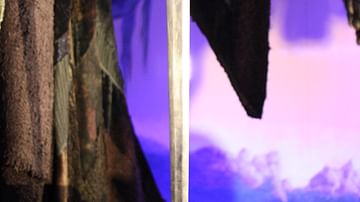
Image
Excalibur, from the 1981 Film Excalibur
King Arthur's sword Excalibur from the 1981 Film 'Excalibur'. (London Film Museum)
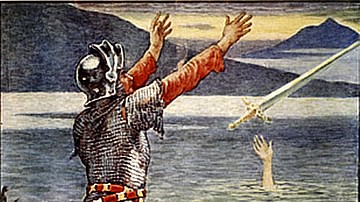
Image
Sir Bedevere Returns Excalibur to the Lake
An illustration by the 19th century CE artist Walter Crane depicting Sir Bedevere throwing King Arthur's sword Excalibur back into the lake from whence it came.

Image
Sword
Modern reproduction of a medieval sword.

Image
Manuscript of Amos 2, c. 550 CE
A manuscript of the second chapter of the ancient biblical book of Amos by a scribe in the 6th century CE copying a c. 750 BCE original. (University of Pennsylvania Library, USA)
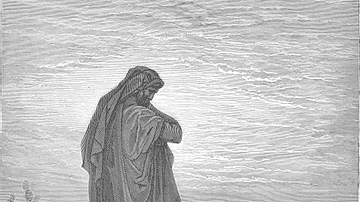
Image
Amos Grieves over Israel
A 19th century CE artist's impression of the prophet Amos looking over the wickedness of Israel in grief.
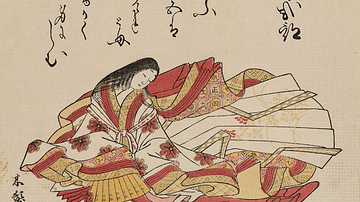
Image
Izumi Shikibu
A 1765 CE print depicting the 11th century CE Japanese poetess Izumi Shikibu (Museum of Fine Arts, Boston, USA)
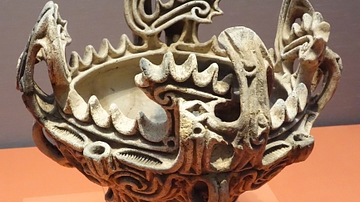
Image
Jomon 'fire-flame' Vessel
A Jomon pottery vessel with the decorative style known as 'fire-flame'. Jomon Period, 3000-2000 BCE, Sasayama site, Niigata Prefecture. Japan. (Tokyo National Museum)
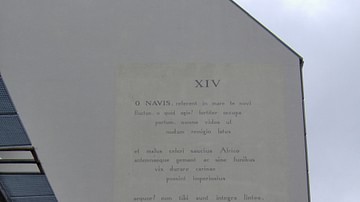
Image
Odes, Poem 14
A poem of the Roman poet Horace on a wall of the building at Cleveringaplaats 1, Leiden, The Netherlands.
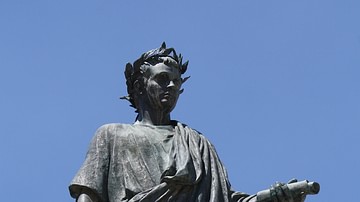
Image
Horace
Statue of Quintus Horatius Flaccus (65-8 BCE) in Venosa, Italy.